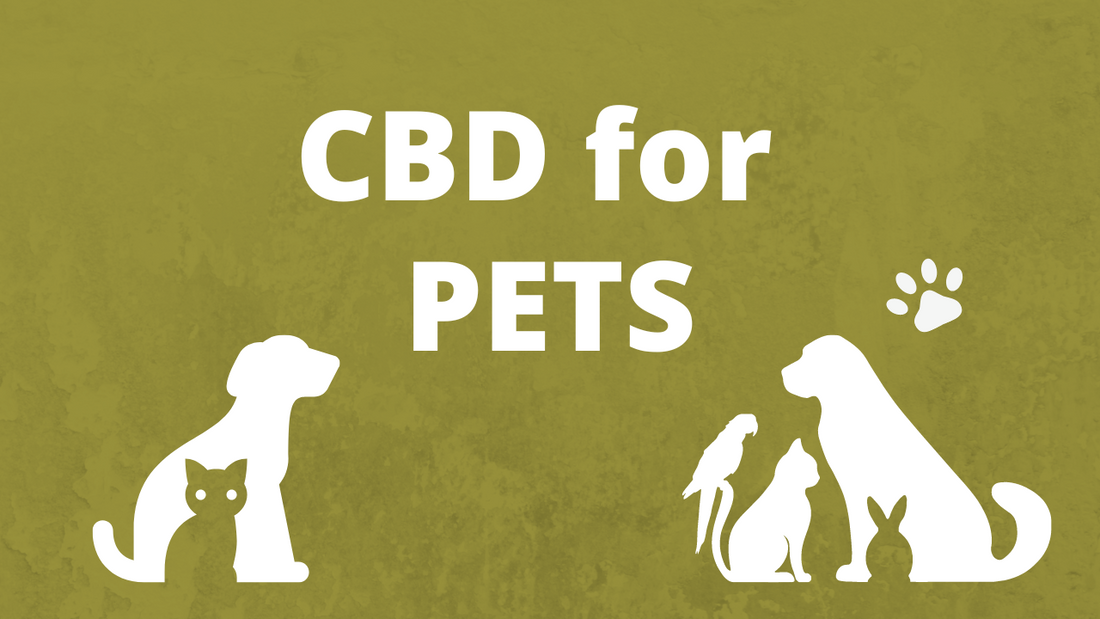Cannabidiol (CBD) has been gaining popularity in recent years for its potential health benefits, not just for humans but for pets as well. CBD is a compound found in the hemp plant, and it is non-psychoactive, meaning it does not produce the "high" associated with the use of marijuana.
Overview of the use of CBD for pets
As more and more people discover the benefits of CBD for themselves, they are also starting to explore its potential benefits for their pets. Pets, like humans, have an endocannabinoid system that is responsible for maintaining balance in the body. By supplementing this system with CBD, pet owners hope to improve their pet's health and quality of life.
In this article, we will delve into the potential benefits of using CBD for pets, how it works in the body, and the safety and side effects of using this compound. By the end of this article, you will have a better understanding of the use of CBD for pets and whether it may be a suitable option for your furry friend.
Understanding CBD and its effects on pets
CBD works in the body by interacting with the endocannabinoid system, which is responsible for maintaining balance and homeostasis. The endocannabinoid system has receptors that are found throughout the body, including in the brain, immune system, and nervous system.
When CBD is introduced into the body, it interacts with these receptors to help regulate various physiological processes, including mood, appetite, pain, and inflammation. In pets, the endocannabinoid system is similar to that of humans, and the same principles of how CBD works in the body apply to both.
CBD has been shown to have potential therapeutic benefits for a variety of conditions in pets, including:
- Anxiety and stress: CBD has been shown to have a calming effect on pets and may help to reduce anxiety and stress levels in animals. This can be beneficial for pets that experience separation anxiety, fear of loud noises, or other phobias.
- Pain and inflammation: CBD has anti-inflammatory properties and has been shown to provide pain relief for animals suffering from arthritis, chronic pain, or other conditions that cause discomfort.
- Seizures: CBD has been shown to have anticonvulsant properties and may help to reduce the frequency and severity of seizures in animals with epilepsy.
- Appetite and nausea: CBD has been shown to stimulate appetite and reduce nausea, making it beneficial for pets with conditions such as cancer or other illnesses that can cause loss of appetite or digestive upset.
- Skin conditions: CBD has anti-inflammatory and antibacterial properties that may help to reduce skin irritation and soothe skin conditions such as hot spots, allergies, and dermatitis.
It's important to note that while these potential benefits of CBD for pets are promising, more research is needed to fully understand the effects of CBD on animal health. It's also important to consult with a veterinarian before starting your pet on CBD, as they can help determine the right dosage and monitor your pet's health.
The difference between CBD and THC
It's important to note that CBD is not the same as THC, which is another compound found in the hemp plant. THC is the psychoactive compound that is responsible for producing the "high" associated with the use of marijuana. In contrast, CBD is non-psychoactive and does not produce any intoxicating effects.
Dosage
The correct dosage of CBD for pets can vary depending on a number of factors, including the size of the animal, the condition being treated, and the concentration of CBD in the product.
Here are some general guidelines for dosing CBD for pets:
- Start low: It's always a good idea to start with a lower dose of CBD and gradually increase as needed. This will help you to avoid any potential side effects and will also allow you to monitor your pet's response to the CBD.
- Consult with a veterinarian: Before starting your pet on CBD, it's important to consult with a veterinarian. They can help determine the right dosage for your pet based on their size, health status, and the condition being treated.
- Use a product specifically formulated for pets: It's important to use a CBD product that is specifically formulated for pets, as these products will have the right concentration of CBD for animal use.
- Follow the product label instructions: Always follow the instructions on the product label, as the recommended dosage can vary between products.
- Monitor your pet's response: Pay close attention to your pet's behavior and symptoms and adjust the dosage as needed. If you notice any adverse effects, reduce the dose or stop using the CBD.
Safety and side effects of using CBD for pets
The safety and side effects of using CBD for pets are still not fully understood, and more research is needed in this area. However, the studies that have been conducted to date suggest that CBD is generally well-tolerated by pets and that side effects are rare.
Common side effects that have been reported in pets include dry mouth, drowsiness, and changes in appetite. It's important to note that these side effects are generally mild and short-lived, and they are not seen in all pets.

